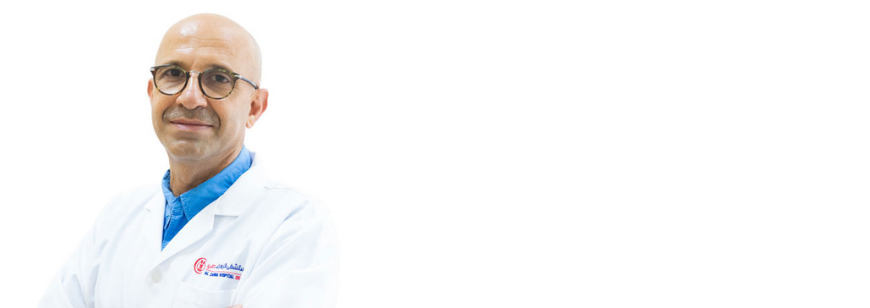Get to know more about ways to detect and safely care for Hernias in children with leading French Pediatric Surgeon, Dr. Fadi Iskandarani
21 September 2021
| Last updated on 27 September 2021
When discussing hernias, most people tend to link it with adults; not knowing that hernias are highly common in children. Additionally, hernias are difficult to detect in newborns and more likely to occur in premature babies.
If the hernia goes unnoticed and no treatment is provided, it can become life threatening, leading to symptoms and complications which include nausea and vomiting, bloating or full abdomen, fever and more.
Hernias are typically treated through surgery and if cared for properly, can be treated with little to no complications.
It is every mother’s nightmare knowing that their little ones need medical attention or surgery. Through careful planning, the right treatment, and choosing the right team of expert pediatricians in Dubai, your child will get all the care needed.
What is a Hernia?
To start, a hernia is when part of an organ or tissues push against weak muscle walls or an opening, creating a bulge.
When it occurs in children, it is typically caused by small muscle wall openings that are meant to close as they grow. From the opening, fibrous tissues or organs bulge through, creating a weak spot.

Symptoms of hernia in children
Finding a bulge or lump in your child is a common way to detect hernia and a reason to visit a physician. Other common symptoms of hernias in children are a round belly, vomiting, soreness, discoloration and more.
Multiple studies show that hernias tend to be more common in children who are premature, have a low birth weight, and/or have a family history of hernia.
There are different types of hernias that could occur in children, with Inguinal Hernia being the most common occurring in 80% of hernia cases in children. Inguinal hernia occurs around the groin area, trapping an ovary or a piece of a bowel in the inguinal canal.
Other types of hernia include Umbilical, Epigastric, Hiatal Hernias and more.
Treatment for pediatric hernia in Dubai
The procedure done for children with hernias is typically through laparoscopy or open surgery and it is important to have a specialized pediatric surgeon complete it.
A pediatric surgeon has specialized training in performing surgical procedures in children, having the ability to attend to children along with making them feel at ease and addressing their unique medical needs.
"It is highly important to treat hernias in children before facing any serious complications," said Dr. Fadi Iskandarani, Pediatric Surgeon at Al Zahra Hospital Dubai.
"Surgical repair is known to be the most effective treatment for hernia in children, which can be done either laparoscopically or through open surgery. With a pediatric surgeon, children can get the specialized care that they need," he added.
Post-treatment care
Once the procedure is completed, it is important to ensure proper aftercare, leading to a better recovery. Recovery is expected to occur gradually, and the child is expected to fully recover after approximately two weeks.
Children should avoid activities and must rest whenever feeling tired.
After the removal of the hernia, there will be little to no long-term effects that the child is expected to experience, additionally recurrence of the hernia is rare and unlikely to happen.
Dr. Iskandarani is a highly skilled Consultant Pediatric Surgeon, with over 20 years of experience in his field. Specializing in a wide range of pediatric conditions, he has carried out numerous uniquely successful procedures.
Dr. Iskandarani offers quality urgent care for all children, creating small miracles every day.




.png?itok=HBSyMDok)









































































.png)




























.png?itok=0fOAXkOm)

























.png?itok=EH_x0Pha)
